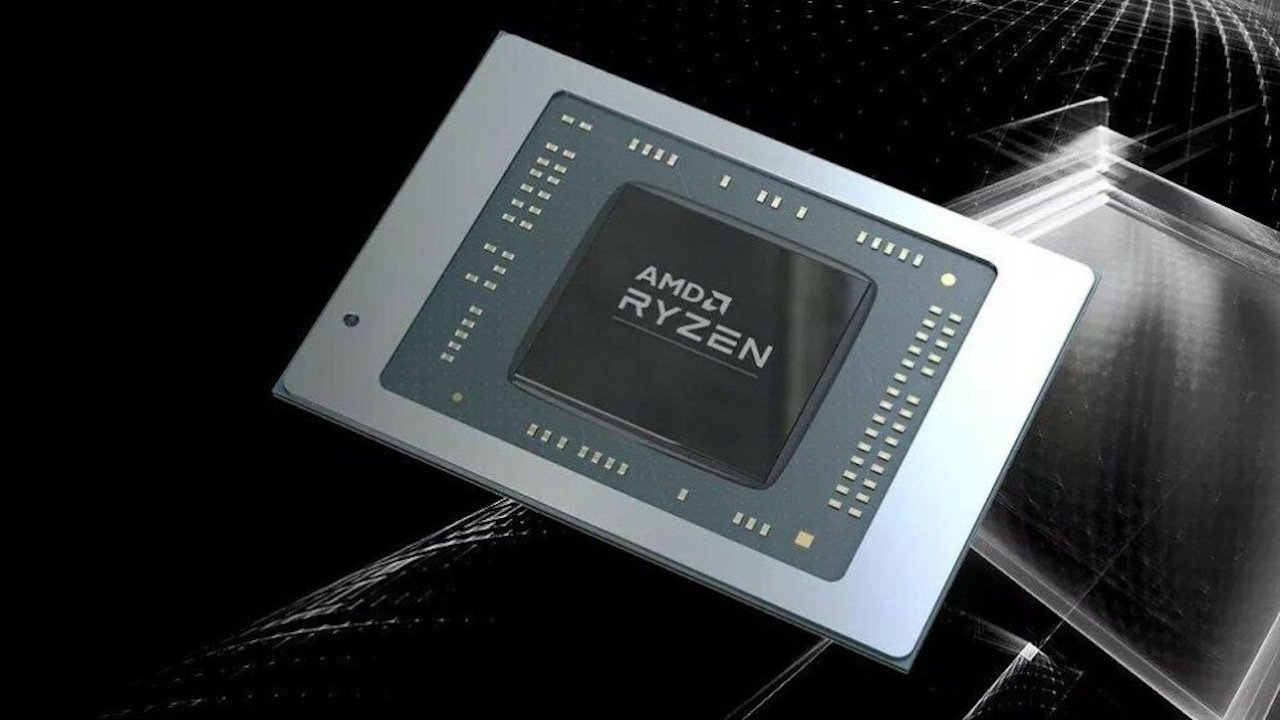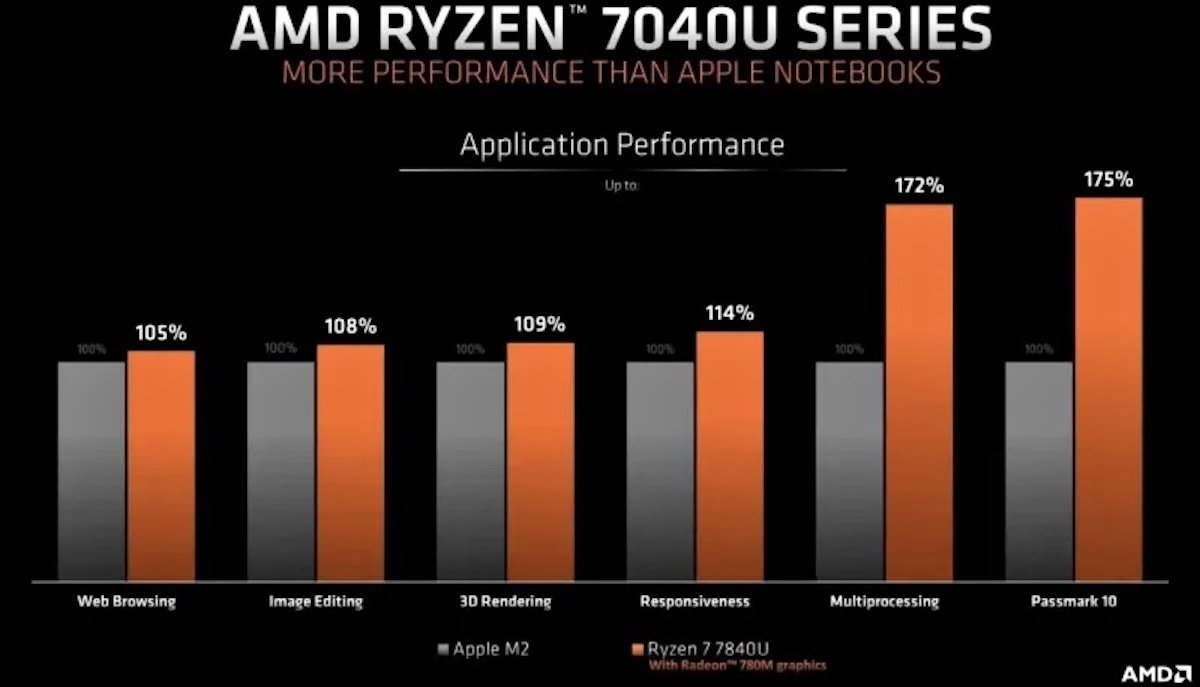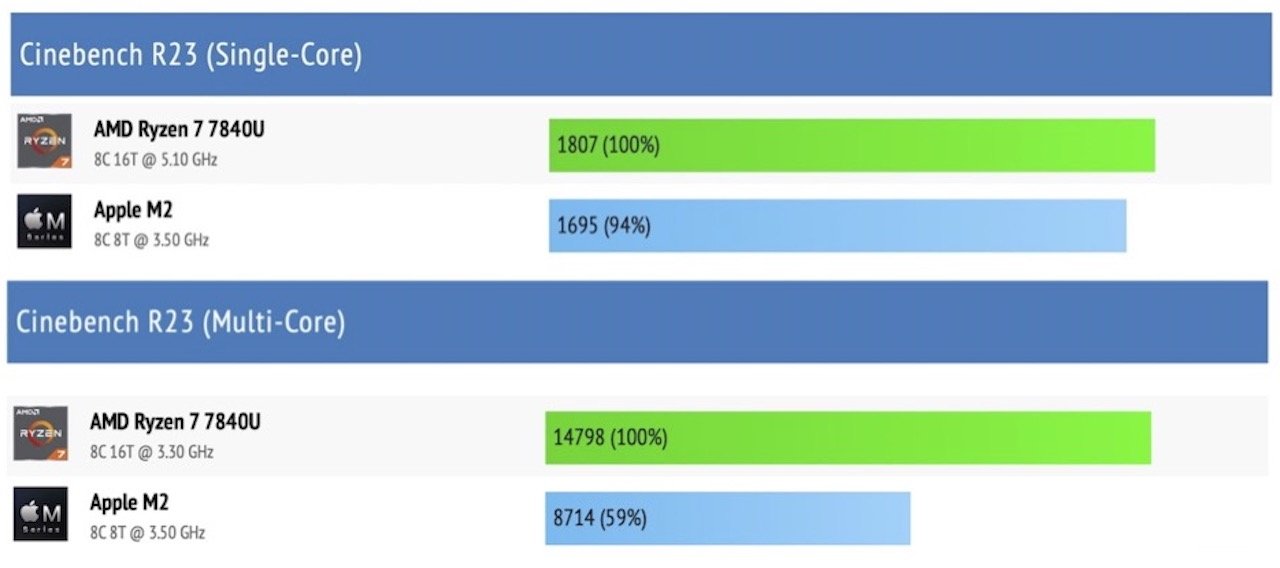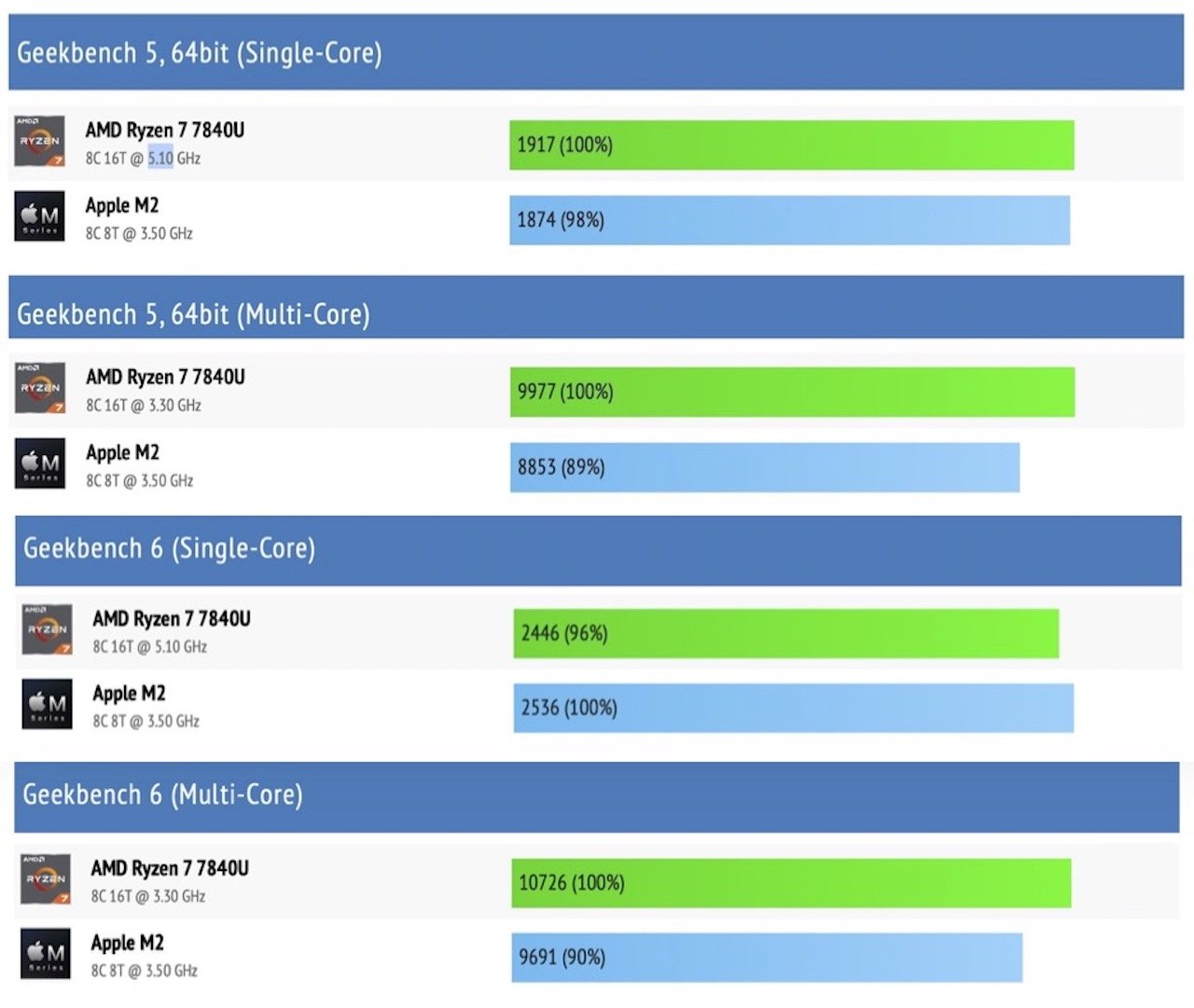Stop us if you've heard this before: There's a new Apple Silicon killer in town
AMD announced a new chip for thin-and-light notebooks that it specifically claims beats Apple's year-old M2. Did the company cherry-pick results and hide the compromises, or is this a genuine triumph?
A couple of months ago, Intel came out with a "notebook" processor — the Intel Core i9 13980HX — that it claimed with a healthy dose of deception it could beat Apple's M2 Max, currently Apple's fastest processor. While the specific claims of benchmark triumphs in certain areas were technically true, those advances came with truckload of caveats.
In the case of the Intel chip, it completely lost all of its speed advantage the moment it went on battery, and drained the battery like a starving vampire at a blood bank — making it a very impractical "notebook" chip. Furthermore, it generated enormous amounts of heat that required fans at full blast when doing anything taxing — and was hopelessly overweight at almost seven pounds.
That said, for a very narrow set of specific but popular processor-intensive tasks — with the addition of a more-powerful video card, and keeping it plugged in at all times while wearing headphones to block the noise — it did indeed beat the M2 Max. The compromises were much too great to be any real temptation for most Apple users, but it was still something of a shock for Intel to even get one of its chips into the same ballpark.
Now comes the new challenger
So, it's now AMD's turn to challenge Apple, joining Intel in acknowledging — albeit unintentionally — that the M-series represents an industry leader and ongoing breakthrough in desktop and mobile computing, power and chip efficiency, and integrated graphics performance. From the first M1 models onwards, Macs became a great deal faster than virtually any Windows PC in everyday use, apart from specialized gaming rigs.
The new kid on the block is the latest entry in AMD's Ryzen 7 family, the 7840u.
Right up front, it is easy to see that this chip is far more of a serious challenger than Intel's 13980HX. Unlike Intel's misleading "notebook" claim, the 7840u genuinely is a chip designed not just for notebooks, but specifically for thin-and-light notebooks, meaning it must generate less heat and work more efficiently — and that's just for starters.
This new chip was only announced at the end of last month, and thus hasn't yet appeared in any production machines for real-world testing. That didn't stop AMD from posting a set of nebulous benchmarks that it claims show superior performance to Apple's base M2 chip — the one used in the Mac mini, MacBook Air, 13-inch MacBook Pro, and the two iPad Pro models.
Without an actual machine to test this on at present, it remains to be seen if the 7840u can maintain this seemingly-impressive performance on battery — and how much battery it consumes in comparative tasks. What raises suspicions of Intel-like cherry picking is AMD's overly-broad descriptions of general areas of comparison, narrow differences between the two chips in all but two of the categories, and a lack of specifics and sourcing for any of the results.
Even if we take the claims from AMD at face value, a second look reveals that the company is actually only claiming clear differences in two of the six areas its marketing team picked as "proof" of its dominance. The other four could almost be ties, within the margin of error for benchmark tests.
However, one specific test was named in the promotional chart: Passmark 10, where the M2 has previously been scored at 15,375. The chart from AMD claims the 7840u was 75 percent faster, mirroring pretty closely the other significant-difference result: the "multiprocessing" category.
This new AMD chip isn't actually listed at all in Passmark's online CPU comparisons as of this writing — but if the 75 percent better claim is true, this would give the 7840u a score of just over 26,000. As we saw with multiprocessing comparisons of the M2 against the Intel chip on Cinebench, AMD's hyperthreading technology and the chip having double the number of threads compared with the M2 gives it a natural advantage in multi-processing generally.
It would be interesting to the compare more than just numbers to get a more complete picture — fan noise levels and power consumption of a 7840u-powered notebook versus Apple's base M2 in, let's say, the fan-less MacBook Air. In the absence of that, we have relied on comparison site CPU Monkey to easily compare the scores across a number of benchmarking suites, and that quickly gave us a more complete story that AMD's chart.
By the numbers
Let's start with some stats: both Apple's M2 and AMD's Ryzen 7840u chips are manufactured by TSMC, and the M2 uses a five-nanometer process versus the 7840u's 4nm process. The AMD chip cruises at 3.3GHz, but it can boost up to 5.1GHz, while the M2 has no "boosting" technology.
The GPU component of the M2 is rated at 1.4GHz, whereas the RDNA3 GPU of the 7840u is rated at 2.7GHz, nearly double. Assuming our estimate of the 7840u's multitasking score is roughly right, the M2 Pro and Max versions would easily catch up in GPU and multitasking, at least in the Passmark multitasking scores — and that's a dead giveaway as to why the 7840u wasn't compared to either of those chips.
The Thermal Design Power (TDP) of the 7840u is rated at up to 28 watts, much more befitting a truly portable notebook than the Intel Core i9 13980HX we compared previously, which had a TDP of 55 watts. The M2's TDP is 22 watts, meaning the chip runs notably cooler, even under heavy load.
Looking at Cinebench R23 scores, the results were a bit surprising: in single-core tests, the 3.5GHZ M2 was only very slightly behind the 7840u. Single-core covers most apps the "average" user would routinely use in day-to-day tasks, compared to pro-level apps that can take advantage of all the computing power a machine can muster.
Cinebench's multi-core scores show off where the 7840u excels, given that it has twice the number of threads that can run in parallel compared to the M2, called hyperthreading. The AMD chip scored 14,798, 40 percent faster than the M2's score of 8714.
The chips were also put to the test on two different versions of Geekbench, v5 and v6. In the Geekbench 5 tests, the 7840u and M2 were almost identical in single-core scores, and much more closely matched in multi-core, though the 7840u was still faster — but only by 10 percent this time.
Geekbench 6 handed the M2 its first and only win, with the Apple chip beating the 7840u by four percent in single-core. The multi-core test again saw the 7840u triumph by 10 percent over the M2.
Turning to strictly the GPU portion of the two chips, we looked at compiled results using the iGPU test, which measures how many billion 32-bit floating point operations each can do per second. The M2's GPU is half the speed of the 7840u's GPU, and yet it only lost by 27 percent.
Result: too early to really tell
As mentioned earlier, real-world testing in actual machines is quite different than the marketing department's benchmarks, but looking at these and other preliminary results we can see that AMD has scored at least a partial win over Apple's M2 — and a bigger win over Intel's Core i9 13980HX. The 7840u is a truly integrated chip for lightweight notebooks that seems to seriously compete with the base M2 chip, and maybe even the M2 Pro in some ways.
As we noticed when we compared the Intel Core i9 13980HX to the M2 Max previously, even when scores are competitive in benchmarking suites, there are other factors to consider. Weight was definitely one of those with the MSI Raider gaming "portable," and the initially-strong performance of the Intel "M2 killer" chip sank like a stone when it had to run on battery.
Until we hear otherwise from AMD, we have to assume that the vaguemarks they used for their comparison chart were measured under ideal conditions for a laptop: plugged in, and ignoring quality-of-life factors like heat and battery drain. We'd love to be wrong about that.
We actually do hope the 7840u turns out to be more competitive in the real world than Intel's attempt to "beat" the M2; AMD certainly looks to be trying harder, and taking Apple's engineering more seriously. It's important to remember that competition and one-upmanship like this is healthy for everyone — especially consumers.
 Charles Martin
Charles Martin















 Chip Loder
Chip Loder
 Andrew Orr
Andrew Orr
 Marko Zivkovic
Marko Zivkovic
 David Schloss
David Schloss

 Malcolm Owen
Malcolm Owen

 William Gallagher
William Gallagher







